Before the Fall of the Berlin Wall, East Germany's Secret Police Listened to Your Secrets
The Lives of Others is at once a political thriller and a human drama. The film opens in East Berlin in 1984 with a sequence that alternates scenes from an interrogation with scenes from a training class for aspiring officers of the Stasi, or secret police. Stasi Captain Gerd Wiesler (Ulrich Mühe), code name HGW XX/7, is demonstrating his interrogation technique using audio of his own interrogation of a suspect. Wiesler instructs the students on how to tell whether a subject is lying. A student asks a question that Wiesler judges to be a bit too compassionate (read "bourgeois"), and the professor marks the student's name on the attendance record: surely this student has just flunked the course, or worse. During the feature's first thirty minutes, writer/director Florian Henckel von Donnersmarck draws a portrait of Wiesler that borders on caricature: Wiesler is a highly skilled officer of the Stasi, a proud, zealous, disciplined and entirely cold-blooded professional. He is one of the many cogs in the wheel of "the System," working anonymously and tirelessly, convinced that his efforts are building a better Socialist society.At the end of the class, Lieutenant-Colonel Anton Grubitz (Ulrich Tukur), Wiesler's old school friend (and probably his only friend), who has risen to the position of head of the Culture Department at Stasi, comes to invite Wiesler to a theatrical premiere. The play is by the celebrated East German playwright Georg Dreyman (Sebastian Koch), and its leading character is played by Dreyman's lover, Christa-Maria Sieland (Martina Gedeck), an actress of great reputation. Dreyman, who writes plays about the heroic proletariat, lives a rather comfortable life in a plush East Berlin apartment, enjoying a certain notoriety among DDR officials who value him because he's one of the few East German writers whose work is read in the west. He preserves the respect of the artistic community by using his (relatively) secure position for occasional interventions in favor of dissident fellow artists. Wiesler at once suspects that Dreyman's loyalty to the party is not as strong as it would seem on the surface, even if the high party officials are convinced.Following the performance Grubitz has a brief conversation regarding Dreyman with Culture Minister Bruno Hempf (Thomas Thieme), who also attended. Hempf is attracted to the leading lady. However, since Dreyman is in the way, he must somehow be eliminated. Hempf, who happens also to be a member of the ZK ("Zentralkomitee") which has authority over the Stasi, tells Grubitz about his reservations regarding the playwright's loyalty to the SED ("Sozialistische Einheitspartei Deutschlands," or Socialist Unity Party), suggesting full-scale surveillance of Dreyman. Grubitz, always eager to better his own political future, asks his friend Wiesler to manage this procedure (the highest level of monitoring of suspected individuals), code-named "Lazlo." (Laszlo is a Hungarian name -- perhaps a reference to the high suicide rates in Hungary, which we'll touch on later.) Soon after, Hempf meets Dreyman and Sieland at a party, and in a rather unsubtle way lets Christa-Maria know of his feelings toward her. He also tweaks Dreyman about the naiveté of the belief displayed in his plays that people change; Hempf is convinced that people never change.In a lunchtime scene at Stasi headquarters, a young agent starts to tell a joke about SED leader Erich Honecker. He's overheard and forced to finish it by Grubitz, who then threatens to have him transferred to the most low-level, soul-crushingly boring job available, and finally claims he was kidding.Wiesler stalks Dreyman, noting his comings and goings, and while the playwright is away he has Dreyman's apartment systematically bugged. As the bugging team leaves the apartment, Wiesler notices that a neighbor is watching them through the peephole in her door. He knocks and tells the neighbor that if she tells anyone what she saw, her daughter will lose her place at university. Wiesler sets up his surveillance headquarters in the attic, just above the apartment.As Dreyman and Sieland prepare for a party in the flat in honor of Dreyman's fortieth birthday, Sieland presents him with a necktie and reminds him that he promised to wear it. She wonders if he knows how to tie it, and he replies that he's from the middle class and grew up wearing ties; he's since had to transcend his background (presumably to succeed in a socialist state). When he goes into the hall to put on the tie, though, it becomes clear that he was not telling the truth, and he makes a mess of it. He nips across the landing to knock on his neighbor's door and ask her to tie it for him. She comes into his apartment and ties the tie competently, but she's so nervous (about the surveillance) that Dreyman asks whether she's sick -- but of course she can't tell him what's the matter. The neighbor goes home with Christa-Maria none the wiser; she's mildly impressed at Dreyman's unexpected skill with a necktie.At the party Dreyman's close friend, theater director Albert Jerska (Volkmar Kleinert), is shunned by the other guests. Because Jerska has been blacklisted for his anti-government opinions he hasn't been able to work for years; now people are afraid to be seen talking to him. Jerska's birthday gift to Dreyman is sheet music for a work called Sonata for a Good Man.Soon Wiesler's observations indicate that, contrary to his prejudices toward artists as free-thinkers, Dreyman's attitude toward the DDR and its SED is not particularly scornful. In the meantime, Christa-Maria has been "convinced" by Minister Hempf to be receptive to his advances, and when Wiesler finds out about this development, it dawns on him that maybe Operation Lazlo has more to do with the libido of the Minister than with the DDR's security. From his surveillance post, Wiesler makes Dreyman's doorbell ring to draw Dreyman down to the street door in time to see the minister drop Sieland off and tell her when she must meet him again.Dreyman is provoked to take action by the awareness of his lover's coerced sexual relationship with the minister and the suicide of his blacklisted friend Jerska. After learning of Jerska's death, Dreyman sits at his piano and plays the piece Jerska gave him, the Sonata for a Good Man. Wiesler, listening in the attic, is moved to tears by the music. Christa-Maria comes in and Dreyman quotes Lenin saying if he'd kept listening to Beethoven's Appassionata he'd never have finished the revolution. Then he asks, "Can anyone who has heard this music, I mean truly heard it, really be a bad person?"In the following scene, a small child in an elevator asks Wiesler if he's really with the Stasi, and confides that his father says Stasi agents are bad men who put people in prison. Wiesler starts to ask the boy his father's name, but stops himself.The film showcases Wiesler's empty life -- he apparently has no family -- in an episode with a prostitute. After sex he asks her to stay a little while, but she has another appointment. Saying that he needs to reserve any time he wants in advance, she leaves him alone.Dreyman resolves to help reveal the true face of the DDR government to the outside world. With the help of well-positioned West Germans who provide him with a typewriter that can't be traced back to him, he plans to publish an anonymous exposé in one of the leading West German weeklies, Der Spiegel. The article concerns the DDR government's cover-up of the high suicide rate in East Germany; the government stopped collecting suicide statistics in 1977, at which time East Germany's suicide rate was higher than that of every other country in Europe except for Hungary.As they work on the article, Dreyman's friends worry about being overheard. Dreyman is sure his apartment isn't bugged, but his friends suspect otherwise. They devise a test: a contact in West Germany comes to visit Dreyman's flat and they discuss his plans to return to West Germany with his son, an East German citizen, hidden under the seat of his car. They describe the car, a gold Mercedes, and the intended route, then announce their departure. Wiesler hears everything but decides not to tip off the border guards. When the car makes it across the border, Dreyman and his friends conclude that his apartment is safe and unbugged.Wiesler has heard enough by now to know that Dreyman is writing something that will be smuggled out for publication in West Germany; he's in a position to provide a victory to the DDR and a feather in his own professional cap by foiling Dreyman's plot. However, Wiesler is starting to waver in his determination to bring Operation Lazlo to its conclusion. In the process of snooping in his victims' everyday lives, including their love lives, he has unconsciously been drawn into their world, which in turn has put his own in question. At one point, he approaches a despondent Christa-Maria in a café to tell her how much he admires her work. She replies that he's a good man. He does not tell her his name. When Wiesler returns to the surveillance post, he learns that Christa-Maria went home to Dreyman, skipping her appointment with the minister, and that she won't see the minister again.When Dreyman's article is finally published in the West, it is a public disaster for the DDR, and the playwright becomes a prime suspect. Grubitz is incredulous that with all his expertise, Wiesler could have missed the indications that Dreyman was writing the article. (Wiesler, like Dreyman, has relied on Dreyman's cover story that he's writing a play in honor of the DDR's 40th anniversary.) Minister Hempf uses Christa-Maria's drug addiction as an excuse to have her arrested and threatens to terminate her acting career unless she collaborates with the authorities and denounces her lover as the author of the embarrassing article, which she does. The Stasi searches Dreyman's apartment, but comes up empty-handed.Now Wiesler, who had withheld evidence concerning the source of the article, must decide where his allegiances lie: with the DDR and his brilliant career as a top Stasi officer, or with Dreyman and Christa-Maria, whose honest lives he has come to appreciate. In a tense scene, he sits in an interrogation room as Christa-Maria is brought in, knowing that she will recognize him from their encounter at the café and that Grubitz is watching through the one-way glass. But Sieland is too good an actress to give anything away. Wiesler offers her a choice: never work in the theater again, or become an informant and tell him where Dreyman has hidden the typewriter he used to write the suicide article. He tells her that they already have enough evidence to put Dreyman in jail, so there's nothing she can do for him, but she can save herself and hide her involvement with the Stasi. She agrees, miserably.Wiesler rushes to reach Dreyman's apartment before the rest of the Stasi search team. He extracts the typewriter from its hiding-place and spirits it away. A newly released Christa-Maria comes home and feeds Dreyman a line about being away in the country; she's in the shower when the Stasi team arrives and she emerges in her bathrobe in time to see Grubitz start to pry up the floorboard that still, she believes, conceals the typewriter. She makes bleak eye contact with Dreyman, who knows she must have told them where to look. She leaves the house before Grubitz can get the board up to reveal -- nothing. When she reaches the street, Christa-Maria steps deliberately into the path of a truck and is hit. Wiesler speaks to her briefly as she lies bleeding in the road, but retreats as Dreyman embraces her and apologizes; he believes she removed the typewriter. She dies. Grubitz, who seems slightly abashed by this development, calls off the investigation. However, he tells Wiesler that although Wiesler was clever enough to leave no tracks, Grubitz knows he covered for Dreyman. Grubitz assures Wiesler that he will spend the remaining 20 years of his career steaming open the correspondence of his fellow citizens in a dank Stasi basement.About five years later Wiesler is, indeed, steaming letters open in a basement office; a colleague behind him is listening to the radio. (It's the same young officer who got in trouble for telling a joke about SED leader Erich Honecker -- demoted despite Grubnitz's assurance that he was kidding about punishing him.) The young officer hears on the radio that the Berlin Wall has fallen and shares his earpiece so Wiesler can listen too. When Wiesler gets up and walks out of the Stasi office, the other workers follow him.Two years later, Dreyman runs into ex-Minister Hempf (who has survived the political upheaval very well, thank you), and asks him why his (Dreyman's) apartment was never bugged. Hempf (before throwing in a spurious insult about Dreyman's inability to sexually satisfy Christa-Maria) assures Dreyman that his home was thoroughly bugged, tells him about Operation Lazlo, and advises him to look behind his light switches. Dreyman does so, and then visits the Stasi archives, which have been made public. In the lengthy records of Operation Lazlo, he discovers gaps covering evidence that would have been damning, along with beneficial misinformation, all attributed to a Stasi agent identified as HGW XX/7. He also learns that Christa-Maria was released from custody too late to have extracted the typewriter from its hiding place, and he notices a red fingerprint on one of the pages -- left there by an agent who must have handled the mysteriously missing typewriter with its distinctive red ribbon. The file's final entry notes the transfer and demotion of HGW XX/7, who is blamed for the failure of the operation. Dreyman looks up HGW XX/7's real name and tracks down Wiesler (who now delivers mail for a living), but doesn't speak to him.Two year later still, Wiesler walks past a bookstore advertising a new release with huge posters of the author's face. The book, billed as a novel, is called Sonata for a Good Man, and the author is Georg Dreyman. Wiesler goes inside, opens a copy, and reads the dedication: to HGW XX/7, in gratitude. At the checkout counter the clerk asks whether he should giftwrap the book, and Wiesler replies, "no, it's for me."
Orig. title:
Das Leben der Anderen / The Lives of Others
Score:
84 %
Play this program broadcasted on channel

at 24.11.2025 22:00
 Home
165 TV channels
Price list
Order
FAQ
Try for 1 Kč
Log in
Home
165 TV channels
Price list
Order
FAQ
Try for 1 Kč
Log in




 Home
165 TV channels
Price list
Order
FAQ
Try for 1 Kč
Log in
Home
165 TV channels
Price list
Order
FAQ
Try for 1 Kč
Log in













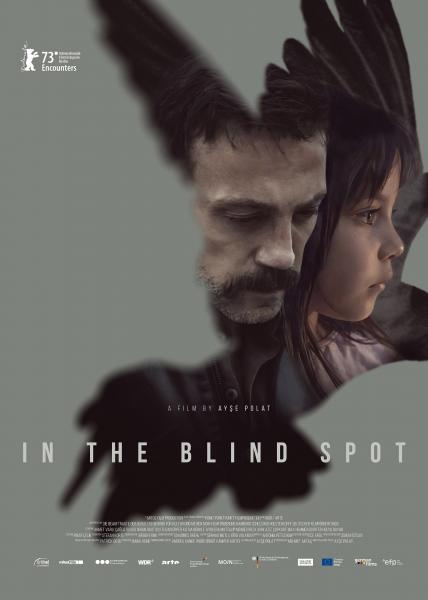












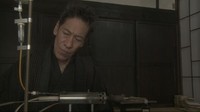

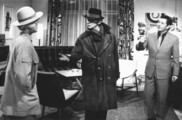




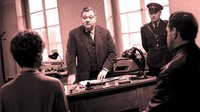


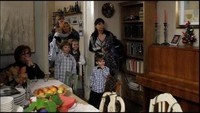










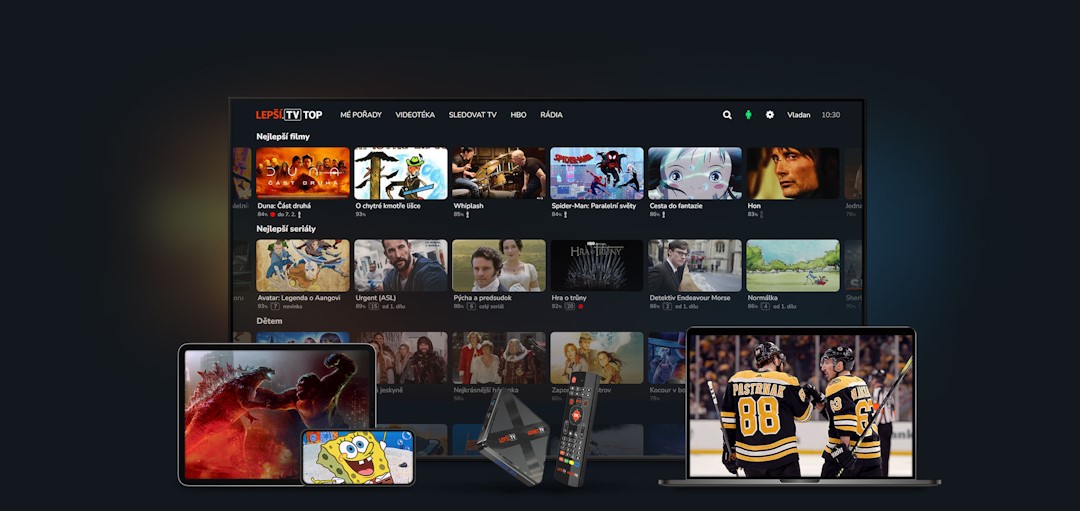
 for 10 days for 1 Kč
for 10 days for 1 Kč  Longest timeshift
Longest timeshift  All without commitment
All without commitment
 Low data bandwich
Low data bandwich
 Unlimited recording
Unlimited recording






